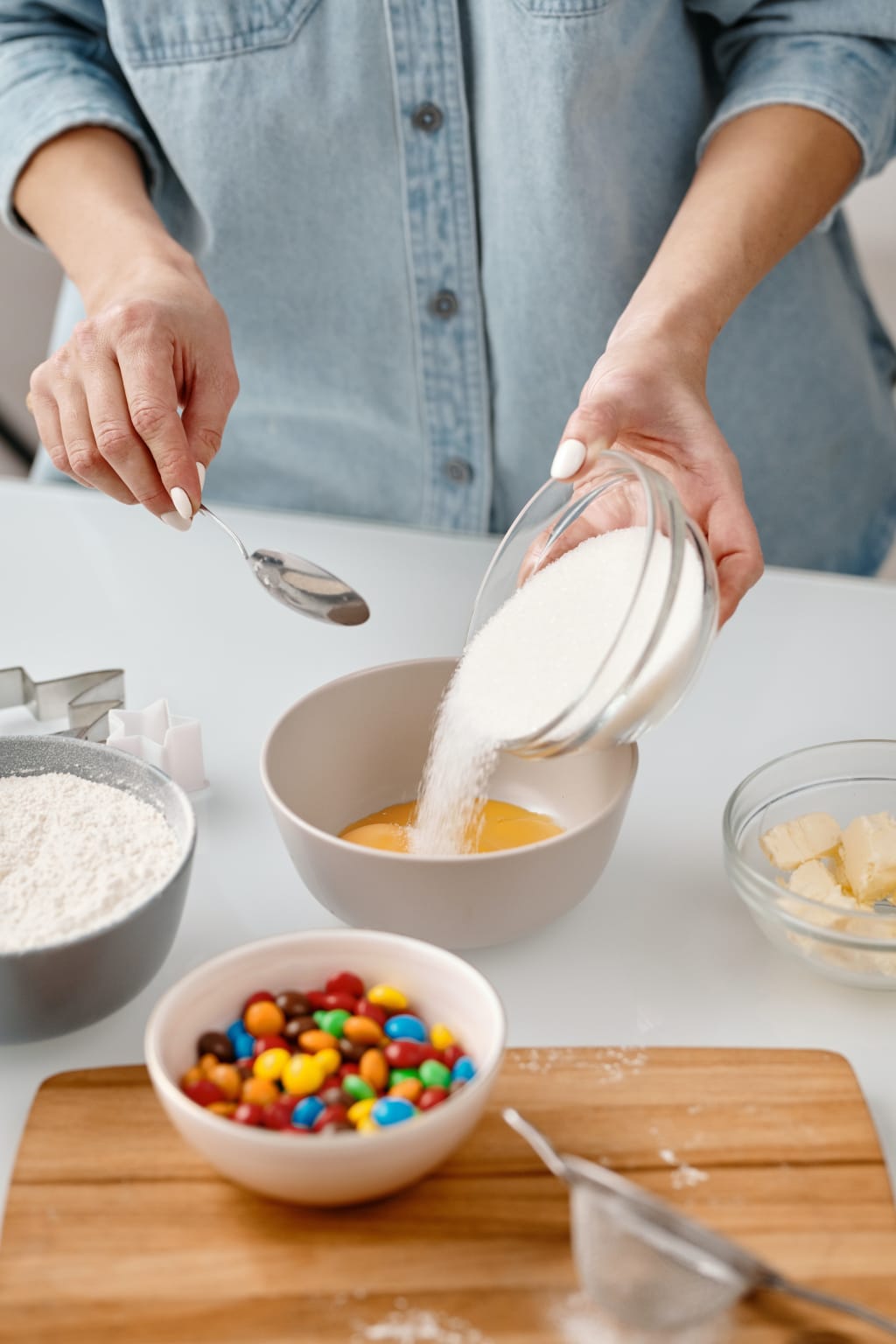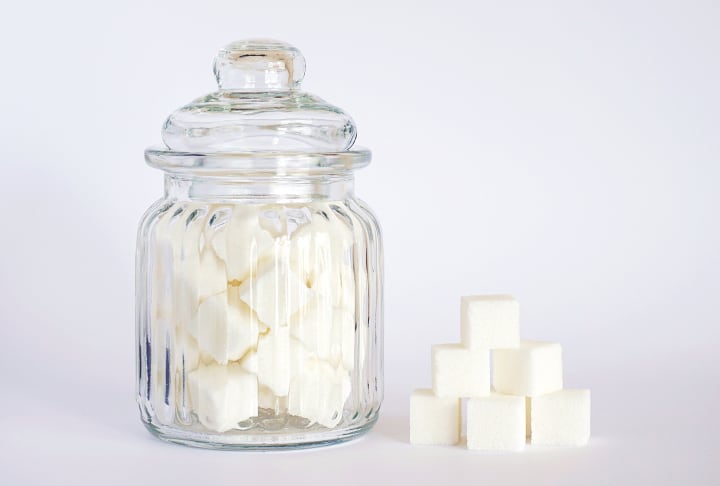The Connection Between Sugar And Diabetes: How To Manage Your Sweet Tooth
Diabetes

Diabetes is an illness that lasts for a long time and affects millions of people all over the world. It is characterized by high blood sugar levels, which may be caused by the body’s failure to create sufficient amounts of insulin or its inability to utilize the insulin it produces adequately. Consuming an excessive amount of sugar is one of the most important contributors to the development of diabetes, although there are many other aspects that play a role as well. In recent years, there has been a growing worry regarding the impact that sugar has on diabetes as well as how individuals can control their cravings for sweets while still maintaining their health. This piece will investigate the link between sugar consumption and the development of diabetes, as well as present actionable advice for overcoming food cravings and selecting healthier options.
Understanding Diabetes
It is necessary to have a complete comprehension of diabetes before going into the relationship between sugar consumption and the disease itself. Type 1 diabetes and type 2 diabetes are the two most common forms of the disease.
Insulin-producing cells in the pancreas are targeted and killed by the body’s immune system in people who have type 1 diabetes, an autoimmune disorder. Type 1 diabetes is the most common form of diabetes. As a consequence of this, the body is unable to create insulin, which is a hormone that is responsible for controlling the levels of sugar in the blood. In order to control their blood sugar levels, people who have type 1 diabetes must either inject themselves with insulin or use an insulin pump.
On the other hand, diabetes type 2 is a metabolic illness that develops when the body either develops a resistance to insulin or is unable to produce enough insulin to maintain normal blood sugar levels. This can lead to high blood sugar levels. In contrast to type 1 diabetes, type 2 diabetes is frequently associated with lifestyle factors such as being overweight, leading a sedentary lifestyle, and making unhealthy food choices. Individuals who have a family history of type 2 diabetes may be more likely to develop the condition, although making changes to one’s lifestyle can be an important part of both diabetes prevention and management.
The Role of Sugar in Diabetes
Consuming sugar has been linked to a higher likelihood of developing type 2 diabetes for quite some time. Consuming sugary foods and beverages causes an increase in our blood sugar levels. The pancreas responds by releasing insulin, which aids in the transportation of glucose from the bloodstream to the cells, where it can be utilized as a source of energy. Overconsumption of sugar can result in insulin resistance, a condition where the body’s cells become less sensitive to insulin’s effects over time. The pancreas responds by producing additional insulin, which results in elevated levels of insulin in the bloodstream.
The development of type 2 diabetes can occur due to the combination of insulin resistance and high insulin levels over time. It is important to note that although sugar consumption is a risk factor for type 2 diabetes, it is not the only cause. The development of the disease is influenced by various factors including genetics, obesity, physical inactivity, and poor diet quality.

Strategies for Managing Sugar Cravings
Keeping sugar cravings under control can be difficult, especially considering the prevalence of sugary foods and beverages in the society in which we live. However, it is possible to cut back on sugar intake and select options that are better for one’s health if one is equipped with the necessary knowledge and also makes use of various tactics. Here are some suggestions to help you control your cravings for sweets:
- Educate Yourself: Being aware of the negative effects sugar may have on your body as well as the dangers involved with consuming an excessive amount of sugar will encourage you to make better food choices. Be sure to keep yourself aware of the sources of hidden sugars in processed foods and beverages, and pay close attention when reading nutrition labels.
- Consider Cutting Back Gradually Instead of attempting to cut out all sugar from your diet at once, think about cutting back gradually on how much sugar you consume. This strategy has the potential to simplify the change and improve the chances of achieving success over the long term.
- Pick Entire Foods To incorporate into your diet, your primary focus should be on choosing entire foods, such as fruits, vegetables, lean proteins, and whole grains. These foods have, on average, lower levels of sugar and higher fiber content, both of which can assist in maintaining healthy blood sugar levels.
- Be Aware of Your Portion Size Although fruits include naturally occurring sugars, they are also an excellent source of important vitamins, minerals, and fiber. Be cautious of the size of the portions you eat, and choose whole fruits over fruit drinks or processed snacks, which frequently contain added sugars.
- Learn to understand Food Labels: It is important to become familiar with the many terms used for added sugars and learn how to understand food labels. The presence of added sugars in a product can be determined by looking for ingredients such as high fructose corn syrup, sucrose, dextrose, and maltose.
- Look for Healthier Substitutes Instead of reaching for sugary sweets and snacks, look for alternatives that are healthier. For instance, you may sate your craving for something sweet by eating a piece of dark chocolate or sipping a fruit smoothie that was produced with natural components.
- Drink plenty of water because our bodies often interpret thirst as hunger or a yearning for sugar. Maintaining proper hydration throughout the day by drinking a sufficient amount of water can assist in controlling food cravings.
- Prepare your meals and snacks in advance so that when hunger strikes you won’t automatically grab for items that are quick and easy but high in sugar. It’s helpful to avoid making hasty decisions by stocking your kitchen with healthy options that are easy to grab.
- Take control of your stress levels because stress might cause you to crave sugary foods as a type of comfort eating. If you want to lessen the probability that you may turn to sugar for emotional relief, you should investigate different methods of stress management such as exercise, meditation, or participating in hobbies.
- When making adjustments to your diet, it is a good idea to get the support of those closest to you, such as family and friends, as well as a healthcare expert. Having a network of people to lean on can offer you accountability, motivation, and direction.
Conclusion
The relationship between sugar consumption and the development of diabetes is a convoluted one. Consuming an excessive amount of sugar is one of the risk factors for developing type 2 diabetes; however, it is not the only factor that contributes to the development of the condition. It is possible to make decisions that are better for our health and lower our chance of developing diabetes if we have an accurate understanding of how sugar affects our bodies and put into practice effective methods to curb sugar cravings. Always keep in mind that moderation is essential. It is not about abstaining from sweets entirely; rather, the goal is to strike a balance that allows for the enjoyment of sweets while also placing an emphasis on one’s general health and well-being.
About the Creator
Abby blasius
I am a passionate content creator with a strong focus on health and wellness. While my educational background lies in a Bachelor of Accounting and Finance, it is my innate desire to help people feel good about themselves in mind, body&soul
Enjoyed the story? Support the Creator.
Subscribe for free to receive all their stories in your feed. You could also pledge your support or give them a one-off tip, letting them know you appreciate their work.






Comments
There are no comments for this story
Be the first to respond and start the conversation.